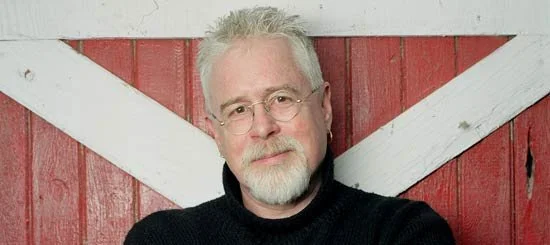Kicking at the Darkness
A little over five years ago when I was living in Cambodia, Tim Amstutz introduced me to the music of Bruce Cockburn (pronounced “co-burn”). Since then, I’ve gotten acquainted with several of Cockburn’s earlier records, and a couple of his newer ones. There’s no one who makes music quite like he does, it seems to me. He started out as a Canadian folk musician, and first made a name for himself in 1979 with his hit song “Wondering Where The Lions Are.” In the 80s, his music took a global and political turn. As Wikipedia puts it,
These concerns became more evident in 1984, with Cockburn’s second US radio hit, “If I Had a Rocket Launcher” (No. 88 in the US) from the Stealing Fire album. He had written the song a year earlier, following a visit to Guatemalan refugee camps in Mexico that were attacked before and after his visit by Guatemalan military helicopters. His political activism continues to the present. Cockburn has travelled to many countries (such as Mozambique and Iraq), played many benefit concerts, and written many songs on a variety of political subjects ranging from the International Monetary Fund to land mines. His internationalist bent is reflected in the many world music influences in his music, including reggae and Latin music.
Certainly this isn’t the kind of subject matter that appeals to everyone, but in my experience his music resonates with a great number of us in international development and similar lines of work. His music isn’t just political though; it’s also deeply informed by the Christian story. While his lyrics contain words not often heard in church, and while this can be unsettling, you can’t really begin to understand what makes Cockburn tick without considering the role faith plays in his life.
Brian Walsh, a university chaplain and professor of theology of culture in Toronto, wonderfully explores the intersections of these themes in Kicking at the Darkness: Bruce Cockburn and the Christian Imagination (Brazos). It definitely helps to be acquainted with Cockburn’s music before reading it, as it’s more about his lyrics and over-arching themes than it is a biography.
What I found most intriguing, and most helpful, was Walsh’s focus on Cockburn’s worldview, and the extent to which it’s informed by his Christian imagination. Worldview, Walsh says, “tell(s) us both what the world is and what it ought to be.” He continues:
Worldviews answer ultimate questions… Everyone, I’m suggesting, answers, usually implicitly and seldom explicitly, at least four such questions. All great myths, all foundational stories, can be interpreted as answering these kinds of questions. First, Where are we? What is the nature of the world in which we find ourselves? Second, Who are we? What does it mean to be human? Third, What’s wrong? What is the source of brokenness, violence, hatred, and evil in life? Fourth, What’s the remedy? How do we find a path through this brokenness to healing? Where is the resolution to the evil in which we find ourselves?
These four questions are the “interpretive window” through which Walsh explores Cockburn’s body of work, and in doing so he points to some clues for rediscovering our place in a world that is broken, but that will one day be made new.
The title of the book comes from a lyric in “Lovers in a Dangerous Time,” and it’s both poetic and profoundly instructive, I think, for Christians living in between the times: “gotta kick at the darkness ’til it bleeds daylight.”
I’m grateful that Cockburn has been kicking at the darkness for so long, and I hope he keeps kicking. Here’s a video of his song “Pacing the Cage,” another song for these times of darkness, but in hopeful anticipation of the age to come.
